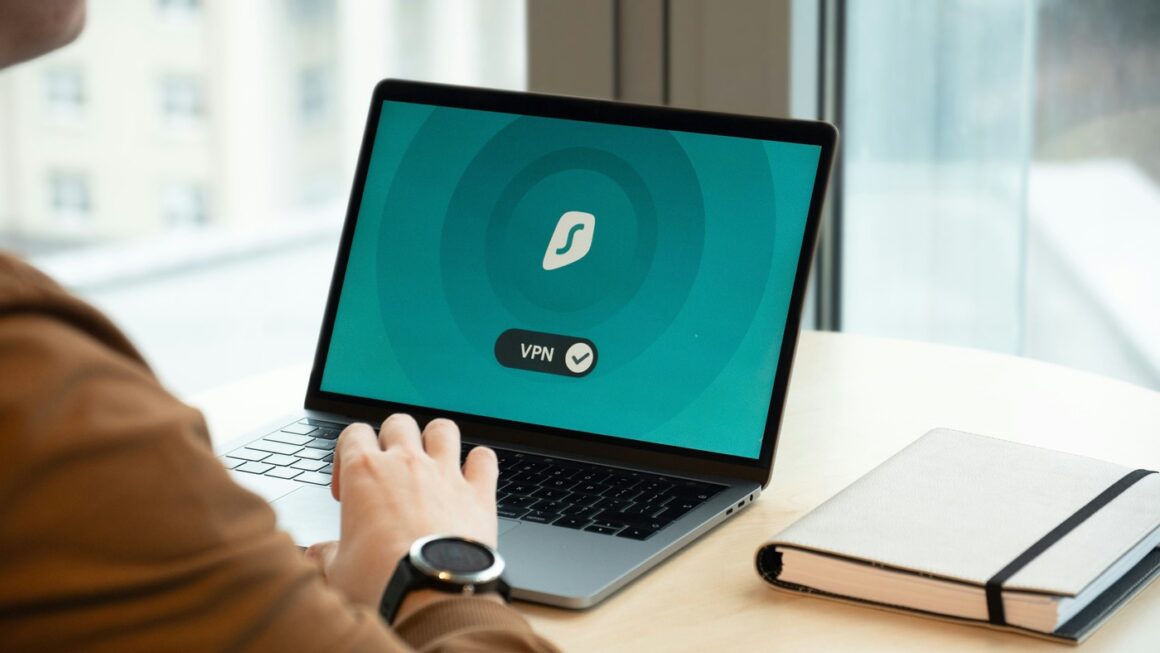1. Introduction
In today’s digital age, the internet has become a pivotal part of our daily lives, but with this increased connectivity comes the heightened risk of cyber threats and privacy invasions. From hackers targeting personal information to ISPs tracking your browsing history, the need for secure internet access has never been more critical. Enter Virtual Private Networks (VPNs), the frontline defenders of online privacy and security. A VPN not only encrypts your internet connection, making it virtually impenetrable to prying eyes, but also allows you to surf the web anonymously from anywhere in the world. In this comprehensive guide, we’ll walk you through the ins and outs of setting up a VPN, ensuring your internet access is secure, private, and unrestricted. Whether you’re a tech novice or savvy user, by the end of this post, you’ll be equipped with all the knowledge needed to safeguard your online presence effectively.
2. Understanding VPNs
2.1 What is a VPN and How Does It Work?
A Virtual Private Network (VPN) is a secure tunnel between your device and the internet. VPNs protect your online activities from being spied on, intercepted, or censored by encrypting your internet connection. This means that whether you’re browsing at home or on public Wi-Fi, your data travels through this encrypted tunnel, invisible to hackers, government agencies, and even your internet service provider (ISP).
2.2 Benefits of Using a VPN for Internet Access
- Privacy Protection: With a VPN, your IP address is hidden, making your online actions almost untraceable.
- Security on Public Wi-Fi: VPNs encrypt your internet traffic, which is crucial when using unsecured public Wi-Fi networks.
- Access Restricted Content: By connecting to servers around the world, you can access content that may be restricted in your region.
- Safe and Anonymous Browsing: VPNs offer a level of anonymity by masking your real IP address and location.
2.3 Common Myths About VPNs Debunked
- “VPNs Slow Down Your Internet Connection”: While encryption may add a slight overhead, choosing a premium VPN service minimizes speed loss.
- “All VPNs Are the Same”: There are significant differences in the quality of encryption, privacy policies, and features among VPN providers.
- “Using a VPN Is Complicated”: Modern VPNs are user-friendly, with one-click connections and intuitive interfaces.
3. Choosing the Right VPN Provider
Selecting the right VPN provider is crucial for ensuring that your internet activities remain secure and your privacy protected. With a plethora of options available, it can be overwhelming to decide which VPN service is right for you. Here are the key factors to consider, alongside real-world examples of top VPN providers:
1. Security Features
Look for VPNs that offer robust encryption protocols, a no-logs policy, and additional security features like a kill switch and DNS leak protection. NordVPN is a prime example, offering AES-256 encryption (the same standard used by the U.S. government) and a strict no-logs policy, ensuring your data remains private.
2. Speed and Reliability
A VPN should not significantly slow down your internet connection. ExpressVPN stands out for its speed and reliability, with thousands of servers in 94 countries, ensuring fast and stable connections for streaming, gaming, and browsing.
3. Privacy Policies
Opt for providers that are transparent about their data collection and sharing policies. ProtonVPN, based in Switzerland, benefits from strict privacy laws and offers a transparent no-logs policy, meaning they do not track or record your online activities.
4. Server Locations
The ability to access a wide network of server locations is essential for bypassing geo-restrictions and enjoying content from around the globe. Surfshark offers an expansive network with servers in over 65 countries, allowing you to access a broad range of content and services.
5. Customer Support
Good customer support is invaluable, especially if you encounter setup issues or have questions. CyberGhost VPN is renowned for its 24/7 live chat support, extensive knowledge base, and user-friendly interface, making it a great choice for beginners.
4. Step-by-Step Guide to Setting Up Your VPN
4.1 Choosing a VPN Service
Based on the criteria above, select a VPN provider that fits your needs. Consider starting with a short-term plan to test the service.
4.2 Signing Up and Downloading the VPN Software
Visit the provider’s website, sign up, and download the VPN client for your device. Most providers offer apps for various platforms.
4.3 Installing and Configuring the VPN on Your Device
Follow the installation instructions. Once installed, log in and connect to a server of your choice.
4.4 Tips for Troubleshooting Common VPN Setup Issues
- Connection Failures: Check your internet connection and try different servers.
- Slow Speeds: Connect to a server closer to your location or contact support for optimized server recommendations.
- Installation Problems: Ensure your device meets the system requirements and consider reinstalling the app.
5. Maximizing Your VPN Experience
To get the most out of your VPN, consider these tips:
- Improving Speed and Reliability: Use a wired connection if possible, and close unnecessary apps to free up bandwidth.
- Using Advanced VPN Features: Familiarize yourself with features like split tunneling, which allows you to choose which apps go through the VPN.
- Maintaining Security and Privacy: Regularly update your VPN software and avoid using public Wi-Fi without your VPN connection.
6. VPN Use Cases
VPNs are versatile tools with several use cases:
- Enhancing Privacy and Security Online: Protect sensitive information from hackers, especially on public Wi-Fi.
- Accessing Geo-restricted Content: Stream content from other countries or access services like banking while traveling.
- Safe Browsing on Public Wi-Fi Networks: Encrypt your connection anywhere, ensuring your data remains private.
Conclusion
Setting up a VPN is a straightforward process that significantly enhances your internet security and privacy. By choosing the right provider, installing the software, and following best practices, you can enjoy a safer, unrestricted online experience. Remember, in the fight for online privacy, a VPN is your best ally. Start today, and take control of your internet security.








